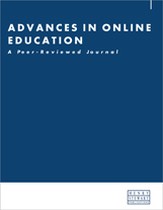Lessons learnt: Digital transformation of processes led to a rethinking of how certificates of completion are issued
Abstract
Digital transformation of processes and services is affecting business and everyday life. This paper describes a small training centre in Iceland that has in recent years been involved in this transformation following discussions and actions in connection with Industry 4.0. As a result of the urgency for digital transformation of services due to the global COVID-19 pandemic, a disruption in services emerged. Collecting information about the digital transformation of educational services led to new knowledge on the phenomenon of issuing credentials/certificates for learners. Issues of security and accessibility as well as potential ways for learners to share verifiable credentials resulted in the investigation, creation, testing and issuing of digital credentials to learners upon the completion of courses at IDAN Education Centre. This journey has highlighted the potential of digital credentials, but at the same time revealed weaknesses that have compelled the authors to face up to challenges, address problems and act. The human factor has been, and continues to be, the most challenging factor in issuing digital credentials. Our organisation stalled in their implementation due to lack of resources, clarity and commitment. Looking ahead, management still believes that digital credentials are of immense value for learners, companies and educators. IDAN is regrouping and reorganising for the next phase of digital transformation of services.
The full article is available to subscribers to this journal (subscription is free).
Author's Biography
Helen Williamsdóttir Gray is a Development Manager for IDAN Education Centre, Reykjavík, Iceland. She holds a BS in dietetics from the University of Umeå, Sweden, an MA in pedagogy and teacher certification from the University of Iceland. She has worked in vocational education and training for 20 years, focusing on improving the educational, professional and personal development of people in education, the labour market and training through national and international projects. She is currently involved in digital transformation work processes in education.
Sigurður Fjalar Jónsson is the Marketing Manager of IDAN Education Centre, Reykjavík, Iceland. He is an experienced teacher with a demonstrated history of working in the computer software industry. His skills include in Moodle, search engine optimisation (SEO), PHP, databases and content management systems (CMS). He holds a Diploma in information technology and teaching from the University of Iceland.
Citation
Gray, Helen Williamsdóttir and Jónsson, Sigurður Fjalar (2022, September 1). Lessons learnt: Digital transformation of processes led to a rethinking of how certificates of completion are issued. In the Advances in Online Education: A Peer-Reviewed Journal, Volume 1, Issue 1. https://doi.org/10.69554/UAKA9874.Publications LLP
